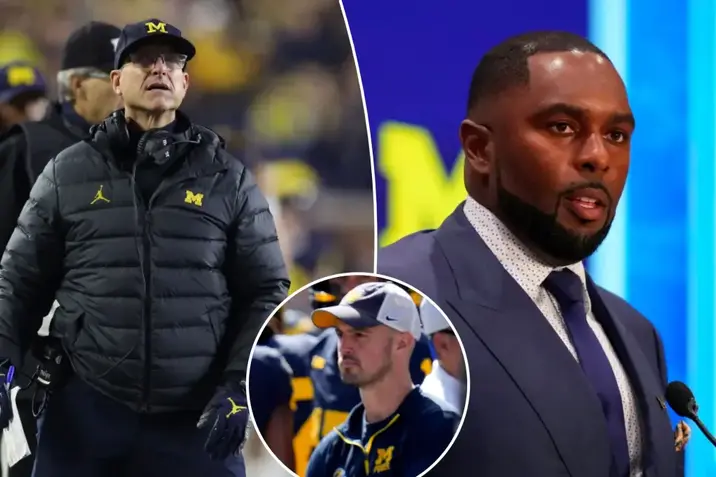T4K3.news
Michigan sanctioned in sign stealing case
The NCAA hands down penalties to Michigan for an illegal scouting scheme, with a plan to appeal.
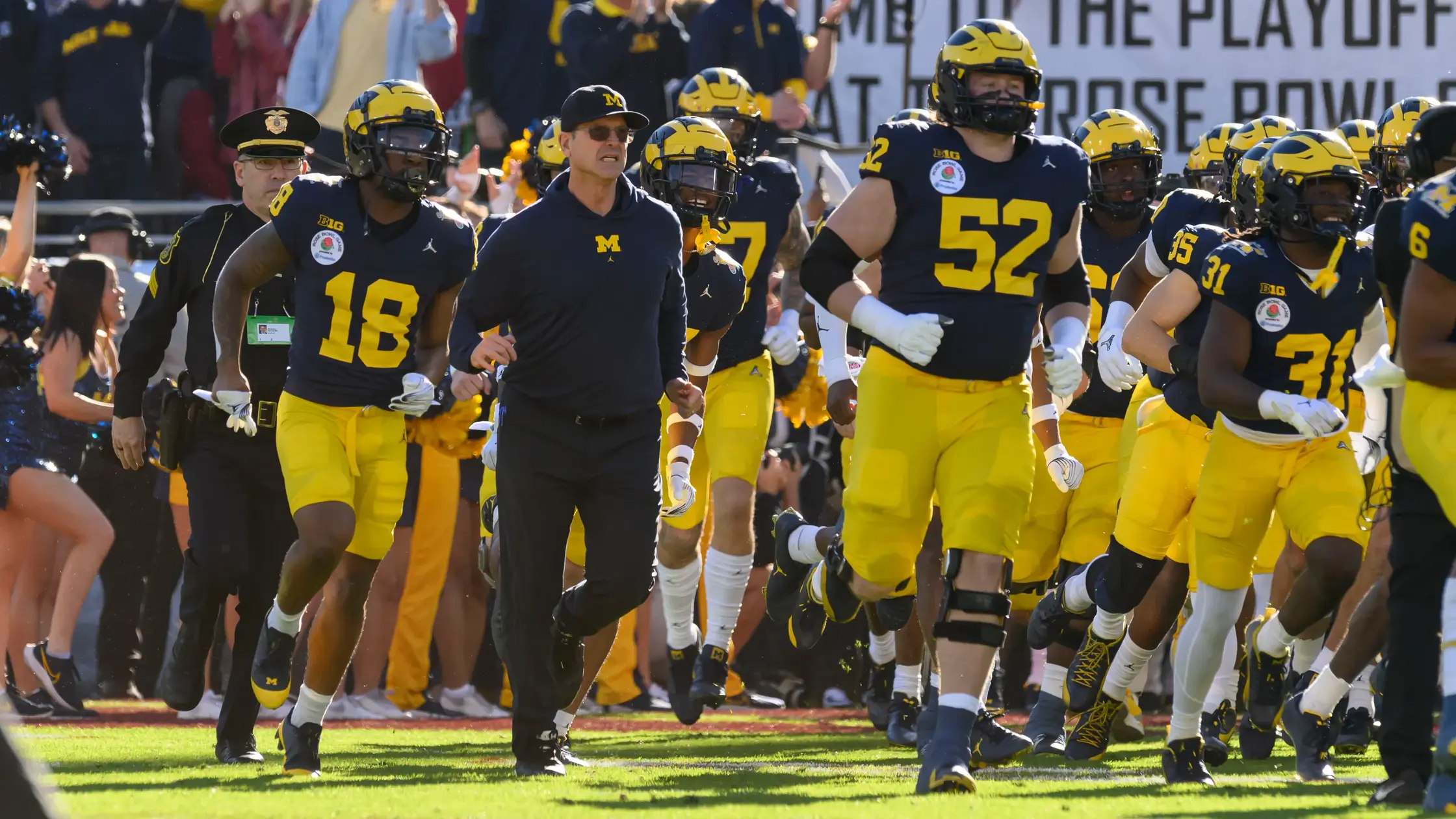
The NCAA issued penalties after a long inquiry into Michigan’s sign stealing and scouting program, while the school plans an appeal.
NCAA sanctions Michigan in sign stealing case
The NCAA announced penalties after a months long investigation into an off campus scouting scheme tied to former staffer Connor Stalions. The panel found that Michigan gained a substantial competitive advantage and that there was an elaborate effort to obstruct the investigation, while also noting a culture that did not prioritize compliance. Michigan will not face a postseason ban or vacate wins, but the sanctions are significant. Head coach Sherrone Moore receives a three game suspension (two games self imposed and the first game of 2026), and the athletic department faces heavy fines, the loss of postseason revenue for two seasons, and recruiting restrictions. Michigan says it will appeal the decision.
Details show that the case involved the 2021 through 2023 seasons and that the head coach responsibility rule was violated by Jim Harbaugh. Harbaugh faces a 10 year show cause order beginning in 2028, while Moore and Stalions also face sanctions. The NCAA notes Stalions admitted destroying materials and providing misleading information, and Moore deleted text messages after a preservation notice. The order requires the school to report to the NCAA every six months until the sanctions end. Michigan officials say they will pursue all legal options while continuing to prepare for the 2025 season.
Key Takeaways
"Stalions' multiple and repeated failures to cooperate are some of the worst the COI has ever seen"
COI assessment of Stalions conduct
"Harbaugh did not embrace or enforce a culture of compliance during his tenure"
NCAA COI finding on head coach responsibility
"Notably Moore deleted at least one text after a preservation notice"
Moore conduct cited by the COI
"I greatly respect the rules governing collegiate athletics and it is my intent to have our program comply with those rules at all times"
Moore statement after penalties
This decision signals a shift in how the NCAA handles misconduct that touches both a major program and its leaders. The penalties aim to punish a culture that allowed rules to be skirted while protecting current players from penalties that would harm them. The severity of show causes and the size of fines show the association will act when it sees systemic issues. Yet the case also raises questions about fairness and the role of coaches who move on. In the end, the case tests whether rules matter more than reputation in college football.
The longer term impact may be a sharper focus on compliance culture across programs, not just in Michigan. Schools will watch closely to see how the NCAA enforces rules when a program wins a national title under scrutiny. The penalties could influence how athletic departments staff and supervise operations in the future, especially around data use and scouting practices.
Highlights
- Trust is earned by following the rules
- Compliance is the baseline not the last resort
- Actions shape a program more than any press conference
- Rules are not optional in college sports
Budget and governance risks from high profile sanctions
The penalties involve large fines, lost revenue, and lengthy show cause orders that affect staffing and recruiting. This could strain the program finances and provoke political or public backlash. Appeals and long term penalties may influence other programs’ approaches to compliance and risk.
The case leaves lawmakers and fans watching how far the NCAA will go to protect the integrity of the game.
Enjoyed this? Let your friends know!
Related News
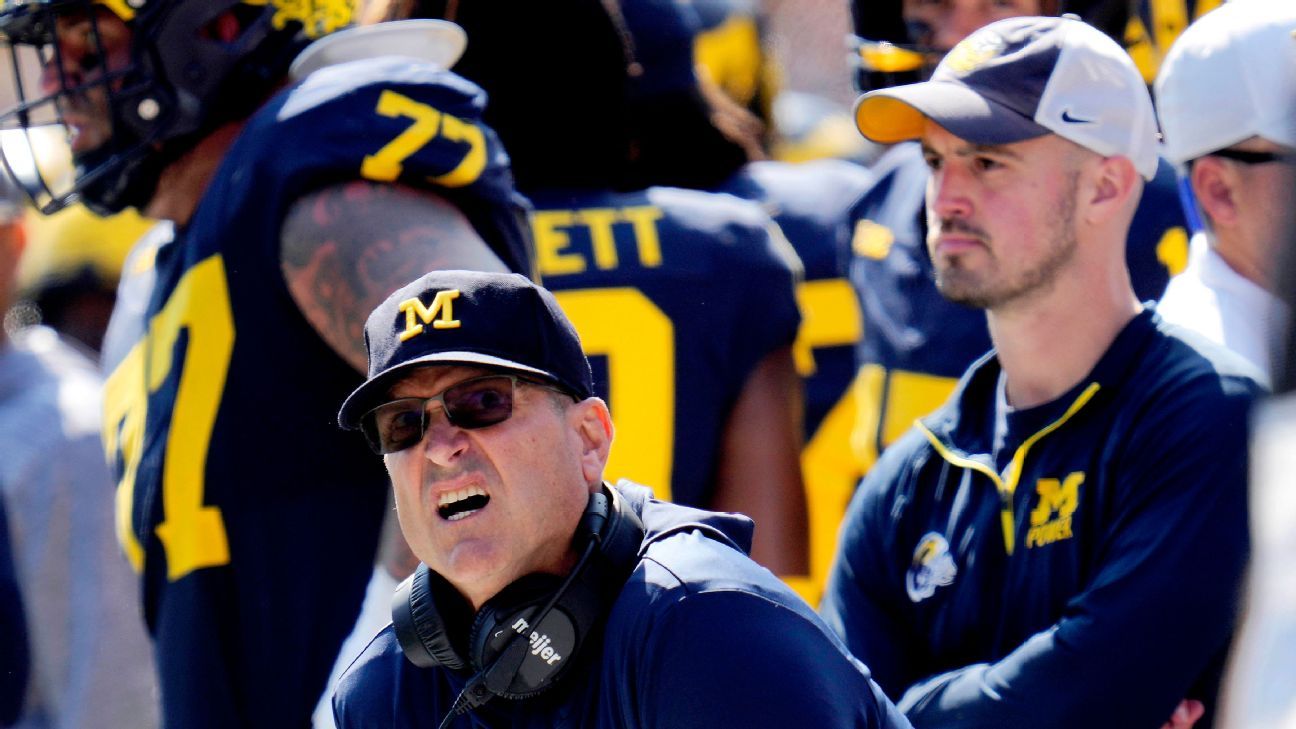
Big Ten commissioner defends Michigan against NCAA penalties
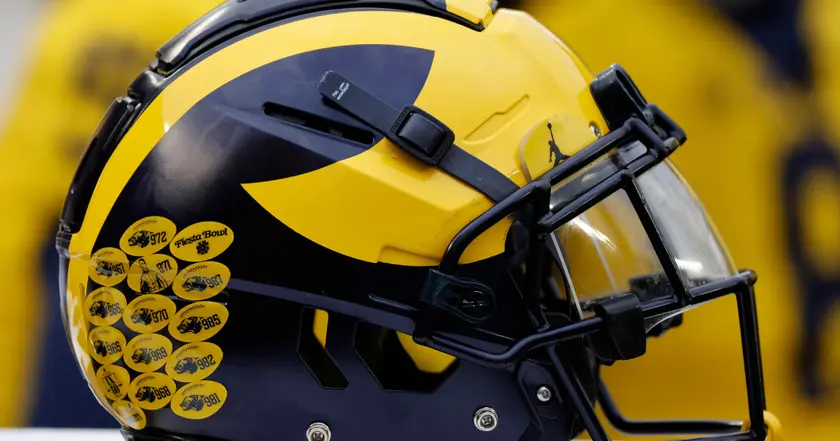
Michigan appeals NCAA sign-stealing sanctions
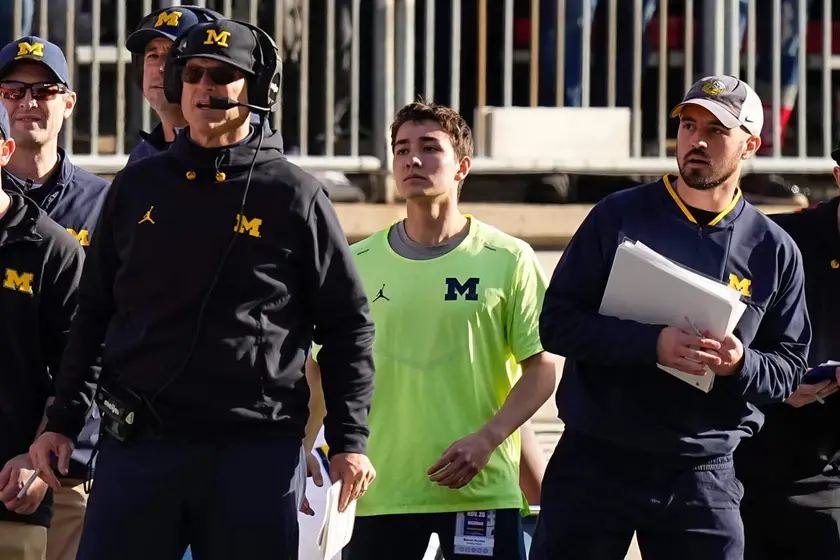
NCAA sets ruling on Michigan sign stealing penalties
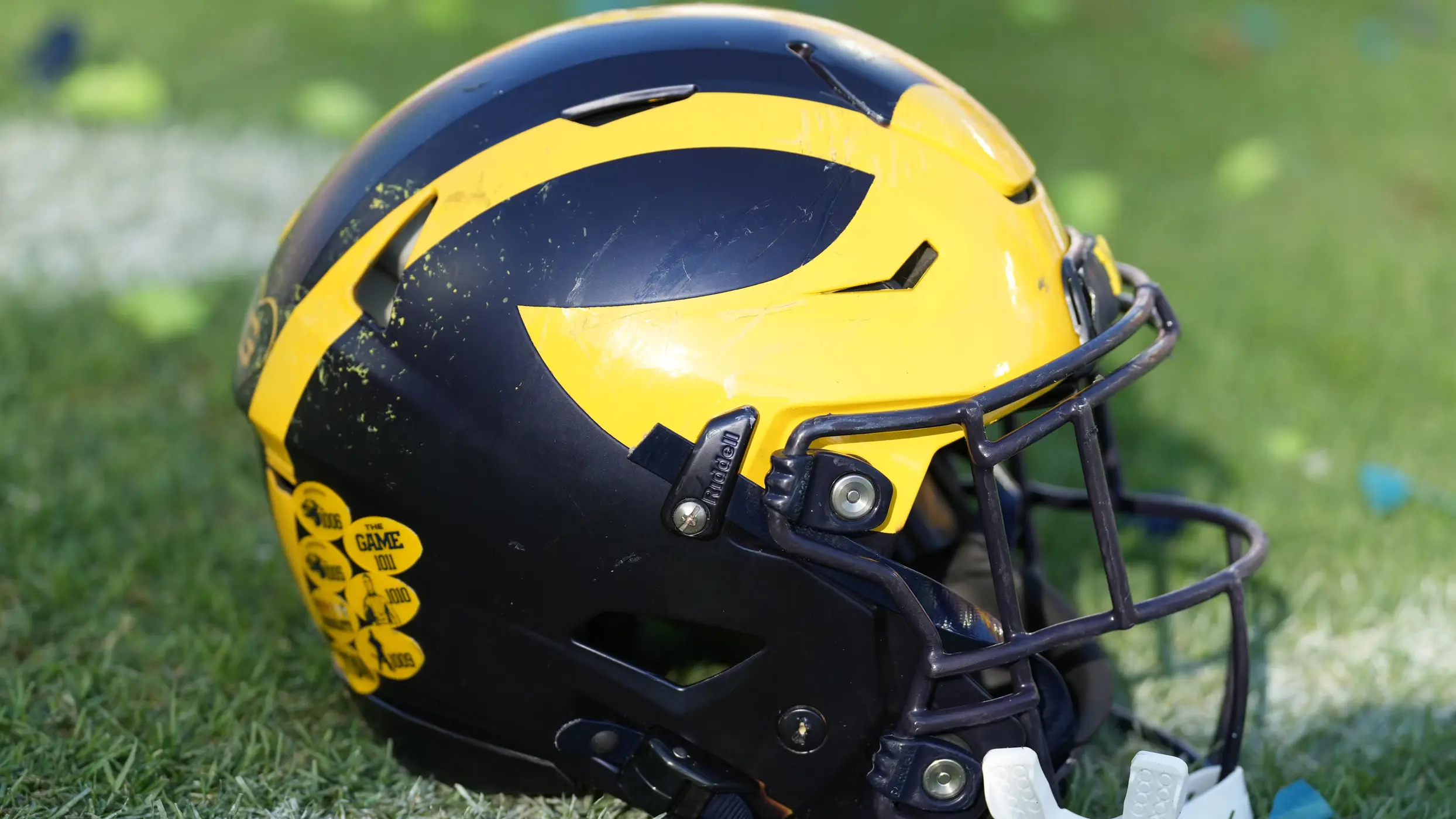
Michigan sanctioned over sign-stealing
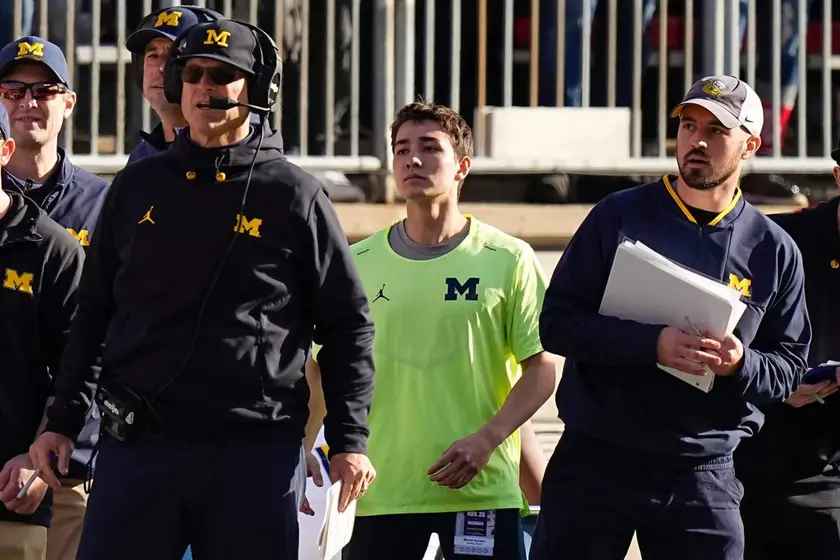
NCAA sanctions Michigan sign stealing ruling
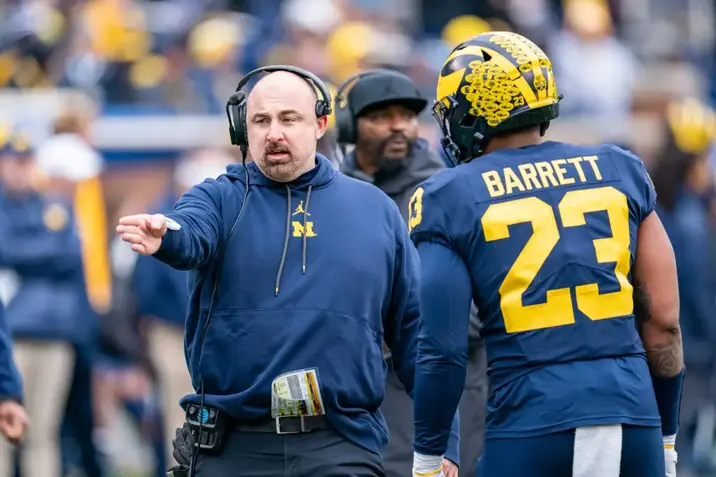
Partridge cleared by NCAA no punishment issued
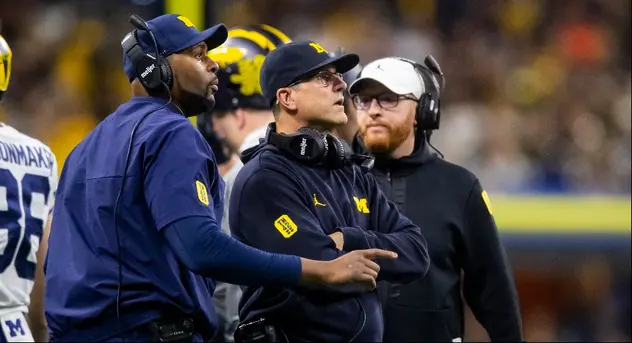
NCAA to release Michigan case findings and penalties
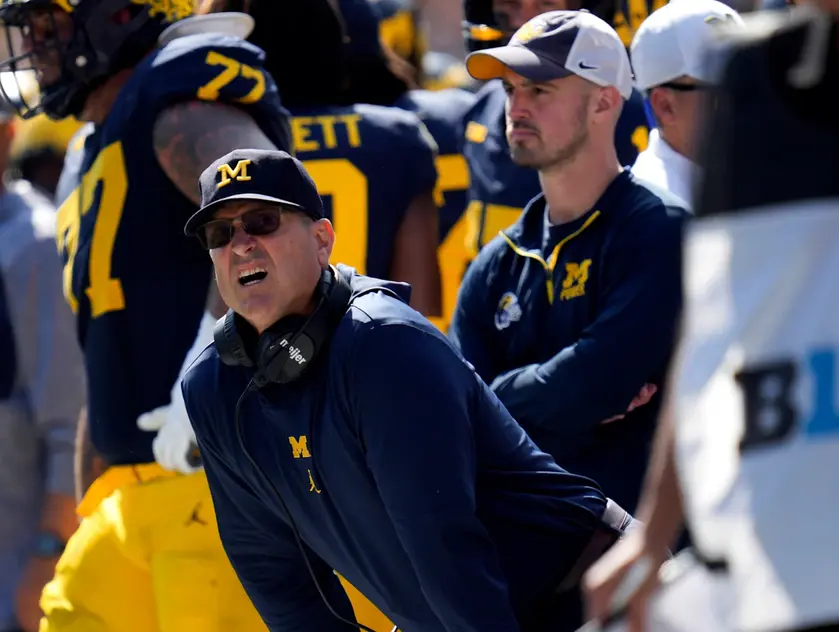
Michigan penalties confirmed by NCAA
